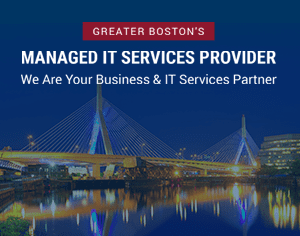Blog

Dive into Cloud Capabilities and Cloud Computing Security
Cloud computing – simply put – is internet based computing in lieu of building or maintaining large in-house technology infrastructure.
In the past, users would download software onto a physical computer or server in the office. Now with the prevalence of faster connectivity speeds and the remote nature of today’s workplace, SAAS models (software as a service) are becoming industry norms, enabling unprecedented levels of productivity, lessened hardware costs and improved functionality. Cloud computing provides many of the features enjoyed by traditional on premise solutions, but relies entirely on your internet connection.
Coincidentally, you may already be computing in the cloud without knowing it. For example, checking your emails on your mobile device, or updating your calendars or CRM like Salesforce, are all cloud based technologies. Today we see the vast majority of businesses have already adopted similar cloud capabilities to address everyday needs, the most common example being email.
Today, businesses are moving more of their operations to the cloud to increase efficiency, minimize operational costs, and provide greater functionality to their employees. However, all benefits aside, there are a number of considerations to keep in mind when transitioning to a predominately cloud infrastructure model.
Business Continuity:
Investing in a robust business continuity plan is a costly venture that requires considerable capital and expertise to create a proper action plan. Moving your business to the cloud not only helps to avoid a number of up-front costs, but saves in loss of productivity by using an SAAS or cloud based model that brings downtime to nearly zero.
Security Updates:
Another key component of cloud computing to take into consideration is the need to maintain the latest security/software updates for your servers. With off-site servers managed by the service provider, you no longer need to worry whether your information is being proactively maintained and protected. This allows business owners to focus on what really matters- growing your organization.
Work from Anywhere:
One of the most obvious benefits to cloud computing is the ability to work from anywhere with an internet connection. With more services being pushed to the cloud, software providers are accommodating to these changes so access through your mobile devices becomes easier and you have even greater access to your IT investments.
This also allows you to share your work with anyone in the world at any time. Any document uploaded to a cloud-based system does not simply exist in a physical location, but online as well, where you can manage accessibility and control your team’s collaborative process.
Things to Consider:
While cloud-computing has many benefits, there are a few things to keep under consideration. Though rare, cloud-based systems can go offline.. In addition to reliability, ensuring the security of your data and abiding by the requirements of your particular industry may prevent you from utilizing many of today’s most common online platforms. Other items such as available bandwidth and complete software functionality are other considerations to keep in mind while transitioning to a cloud environment.
Oftentimes cloud based products are limited in what their on premise counterparts are able to do and can cause a number of headaches for organizations overlooking this. Programs like cloud based QuickBooks are notorious for their limited functionality and can cause more headaches than solutions. Trusting your data to a third-party provider, and picking the right solution to meet your needs can become complicated if you don’t know what to ask or have a clear definition of what you are trying to achieve.
It is why TSI has a dedicated staff of certified engineers who have the knowledge to help guide you. Overall, cloud computing makes the lives of businesses easier while also increasing efficiency and accessibility. It is an innovation that has quickly changed the way we work, both on a simple day to day basis and around the world.
For more information on the benefits of migrating your business to the cloud contact us today!
Confident with Your IT Strategy?
If you found the information in this blog post helpful and you'd like to discuss your business' technology strategy, then we'd be happy to hear from you.
Categories
- Backup & Disaster Recovery
- Business Operations
- Case Studies
- Cloud Services
- Cyber Security
- Employee Spotlight
- Finance & Budgeting
- Glossary Term
- Governance & IT Compliance
- Managed Services
- Mobile Device Management
- Network Infrastructure
- NIST 800-171 & CMMC 2.0
- PCI
- Podcast
- Project Management
- TSI
- Uncategorized
- vCIO
Cyber Security Policy Starter Kit:
10 Critical Policies That Every Company Should Have in Place


